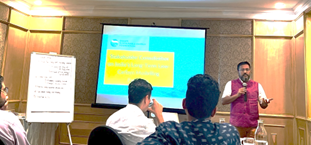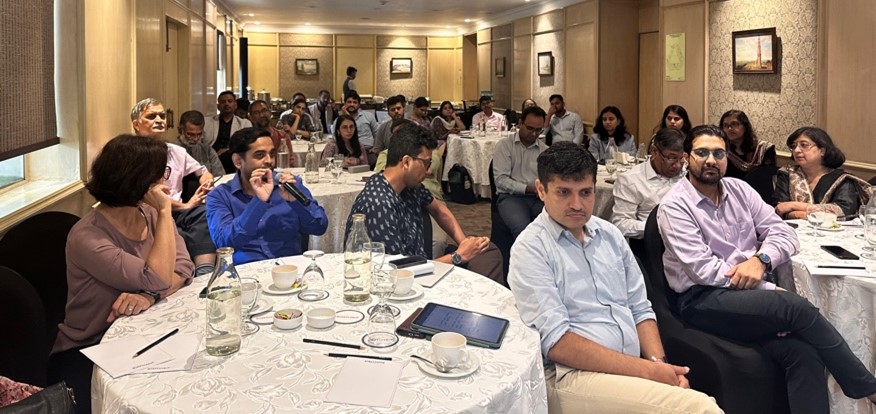
Shakti Sustainable Energy Foundation organised a Stakeholder Consultation on ‘India’s Long-Term Low-Carbon Modelling Pathway.’ The event brought together stakeholders, including CSOs, government bodies, and academia, to discuss key findings and insights from national energy transition pathway modelling studies. The consultation also covered state-level modelling scenarios, and learnings from state-level engagements, and explored ways to enhance modelling efforts at both national and sub-national levels.

Findings from economy-wide scenarios and their macroeconomic implications for achieving low-carbon pathway goals were presented at the event. The event had a discussion on the critical role of integrated modelling assessments that include both energy and non-energy sectors. These assessments were deemed crucial for comprehending the interdependencies and impacts across the entire economy, leading to a more accurate analysis of trade-offs and synergies between sectors. This approach resulted in robust low-carbon pathways and ensured that policy recommendations were holistic and effective.
Further, the discussions underscored the necessity of sub-national economy-wide modelling to understand state-level economic dynamics, identify localised challenges and opportunities, and tailor policy interventions for sustainable development and inclusive growth. Additionally, sectoral deep dives were recognised as vital for pinpointing specific opportunities and challenges within industries. For example, focusing on circularity, Carbon Capture, Utilisation, and Storage (CCUS), and green hydrogen in the industrial sector, and addressing aviation and shipping in the transport sector, were seen as essential measures to drive sustainable practices and reduce emissions.
The deliberations highlighted the importance of including adaptation climate-oriented modelling organisations to enhance the effectiveness of climate resilience efforts by integrating them into modelling frameworks. It also emphasised the need for regional skilling in green jobs to equip local workforces with specialised knowledge of eco-friendly technologies, ensuring effective participation in the green economy. Enhancing capacity-building initiatives was identified as necessary for stakeholders to utilise modelling tools effectively, while proper data management related to energy transition parameters was deemed essential for improving the accuracy and reliability of model outcomes.

In conclusion, adopting a cohesive, consortium-based approach is vital to enhance collaboration among diverse stakeholders, improving the accuracy and comprehensiveness of national modelling efforts for better policy-making and strategic planning. Developing a common narrative strategy is crucial for effectively communicating and aligning stakeholders around national modelling results, ensuring clarity, consensus, and coordinated action. Periodic consultations are essential to maintain this uniform narrative, engage broader stakeholders, incorporate diverse perspectives, and generate innovative solutions. Additionally, cross-sectoral intermodal comparisons are necessary to establish coherent and ambitious targets across different sectors. By comparing diverse sectors such as energy, transportation, and industry, stakeholders can prioritise interventions and optimise resource allocation for maximum environmental and economic benefits. These efforts will strengthen modelling initiatives at both national and sub-national levels, driving more effective and inclusive policy outcomes.
